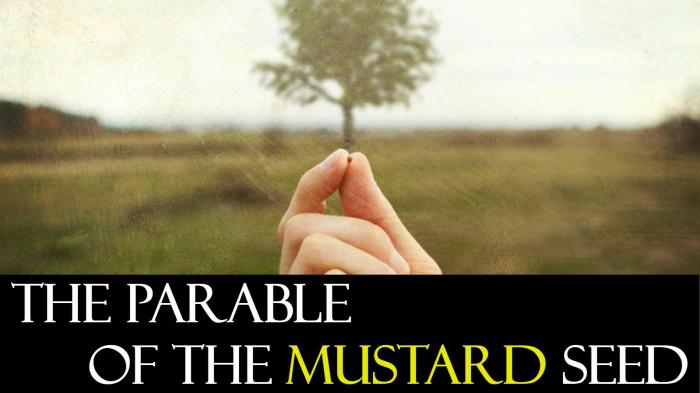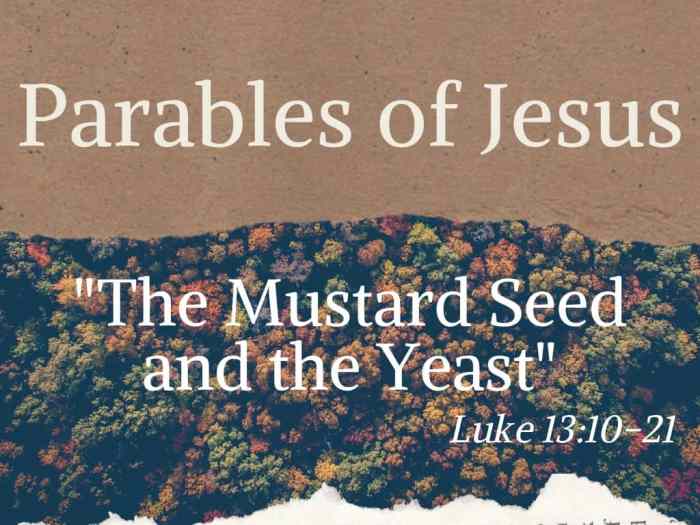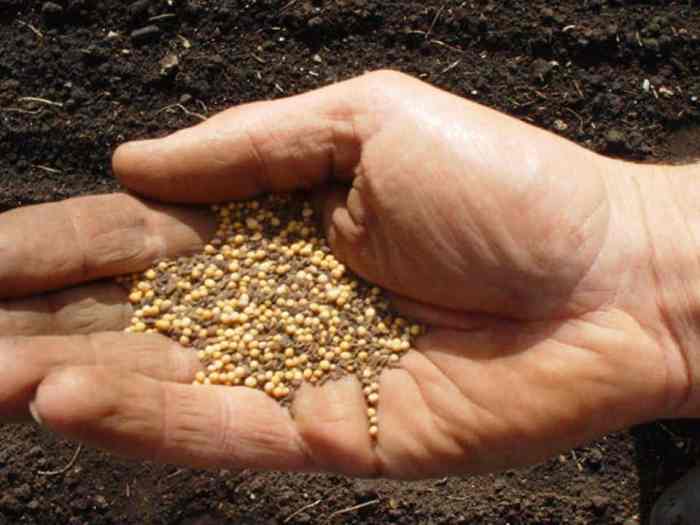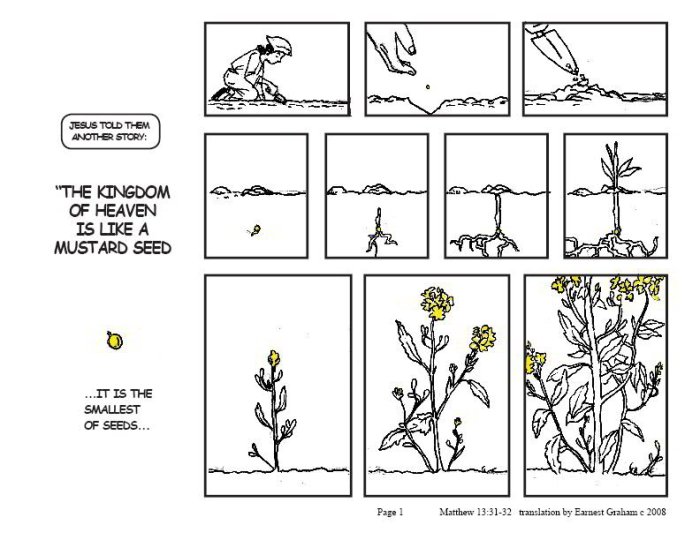Parable of the mustard seed and yeast – In the tapestry of Jesus’ teachings, the Parable of the Mustard Seed and the Parable of the Yeast stand as vibrant threads, weaving together themes of growth, influence, and the transformative power of faith. These parables, nestled within the Gospels of Matthew and Luke, offer profound insights into the nature of God’s kingdom and its impact on the world.
The Parable of the Mustard Seed, with its seemingly insignificant seed that grows into a towering tree, illustrates the remarkable potential for growth and expansion within the realm of faith. The Parable of the Yeast, on the other hand, highlights the pervasive influence of God’s kingdom, capable of permeating even the most ordinary of circumstances.
Parable of the Mustard Seed

The parable of the mustard seed is a story told by Jesus in the Gospel of Matthew. In the parable, Jesus compares the Kingdom of God to a mustard seed, which is the smallest of all seeds. However, when it is planted, it grows into a large bush, providing shelter for the birds of the air.
The literal meaning of the parable is that the Kingdom of God starts small and insignificant, but it has the potential to grow into something great and powerful.
Metaphorical Significance
The mustard seed is a metaphor for the Kingdom of God. It is small and insignificant, but it has the potential to grow into something great and powerful. This is because the Kingdom of God is not a physical place, but a spiritual reality.
It is present in the hearts of those who believe in Jesus Christ, and it has the power to transform their lives.
Real-Life Applications, Parable of the mustard seed and yeast
The parable of the mustard seed can be applied to many different real-life situations. For example, it can be used to encourage us to start small and not be afraid to dream big. It can also be used to remind us that God is always with us, even when we feel like we are facing insurmountable challenges.
Parable of the Yeast

The parable of the yeast is a story told by Jesus in the Gospel of Matthew. In the parable, Jesus compares the Kingdom of God to yeast, which is a small amount of leaven that can cause a whole batch of dough to rise.
The key elements of the parable are:
- The yeast represents the Kingdom of God.
- The dough represents the world.
- The woman who mixes the yeast into the dough represents God.
Symbolism of the Yeast
The yeast in the parable is a symbol of the Kingdom of God. It is small and insignificant, but it has the power to transform the whole world. This is because the Kingdom of God is not a physical place, but a spiritual reality.
It is present in the hearts of those who believe in Jesus Christ, and it has the power to transform their lives.
Practical Implications
The parable of the yeast has many practical implications for Christian living. For example, it teaches us that we should not be afraid to share our faith with others. We may not see the results of our efforts right away, but we can trust that God is working in the hearts of those we reach out to.
Comparison of the Two Parables

The parables of the mustard seed and the yeast are both about the Kingdom of God. However, there are some important differences between the two parables.
The parable of the mustard seed emphasizes the growth of the Kingdom of God. It shows that the Kingdom starts small and insignificant, but it has the potential to grow into something great and powerful.
The parable of the yeast emphasizes the transformative power of the Kingdom of God. It shows that the Kingdom of God can transform the whole world, even though it starts small and insignificant.
Similarities
- Both parables are about the Kingdom of God.
- Both parables emphasize the power of the Kingdom of God.
- Both parables teach us that we should not be afraid to share our faith with others.
Differences
- The parable of the mustard seed emphasizes the growth of the Kingdom of God.
- The parable of the yeast emphasizes the transformative power of the Kingdom of God.
Relevance to Contemporary Christianity

The parables of the mustard seed and the yeast are still relevant to Christians today. They teach us about the nature of the Kingdom of God and how we can be involved in its growth and transformation.
Examples
- The parable of the mustard seed can inspire us to start small and not be afraid to dream big. We may not see the results of our efforts right away, but we can trust that God is working in the hearts of those we reach out to.
- The parable of the yeast can challenge us to be more active in sharing our faith with others. We may not see the results of our efforts right away, but we can trust that God is working in the hearts of those we reach out to.
Practical Application Guide
Here are some practical ways to apply the teachings of the parables of the mustard seed and the yeast to your own life:
- Start small and don’t be afraid to dream big.
- Be active in sharing your faith with others.
- Trust that God is working in the hearts of those you reach out to.
Helpful Answers: Parable Of The Mustard Seed And Yeast
What is the literal meaning of the Parable of the Mustard Seed?
The parable depicts a mustard seed, the smallest of seeds, growing into a large tree that provides shelter for birds.
What is the metaphorical significance of the yeast in the Parable of the Yeast?
The yeast represents the kingdom of God, which, though initially small and unassuming, has the power to transform and permeate the entire world.
How can the Parable of the Mustard Seed be applied to real-life situations?
The parable teaches that even small beginnings can lead to significant growth and impact, encouraging us to persevere in our endeavors.